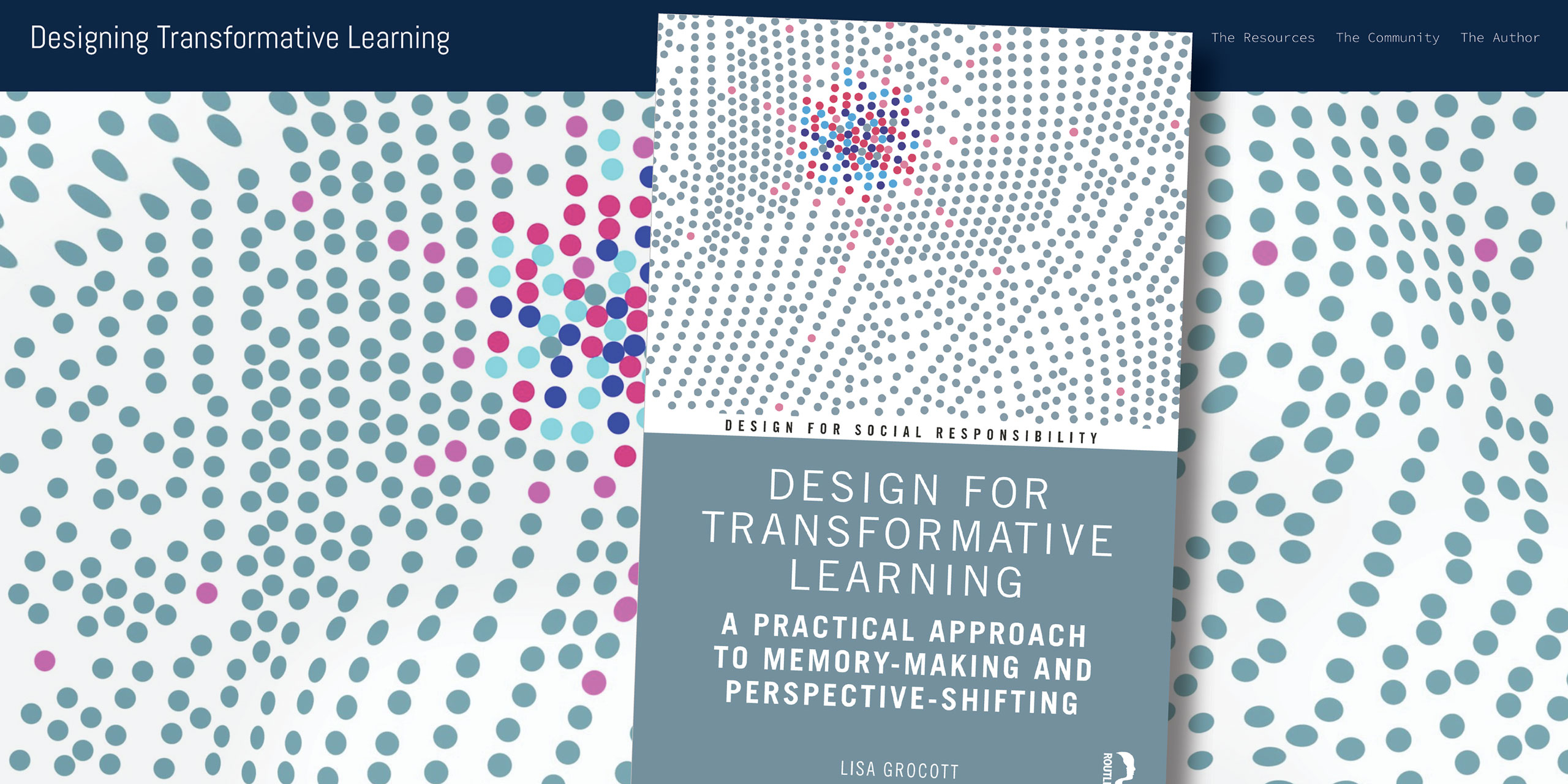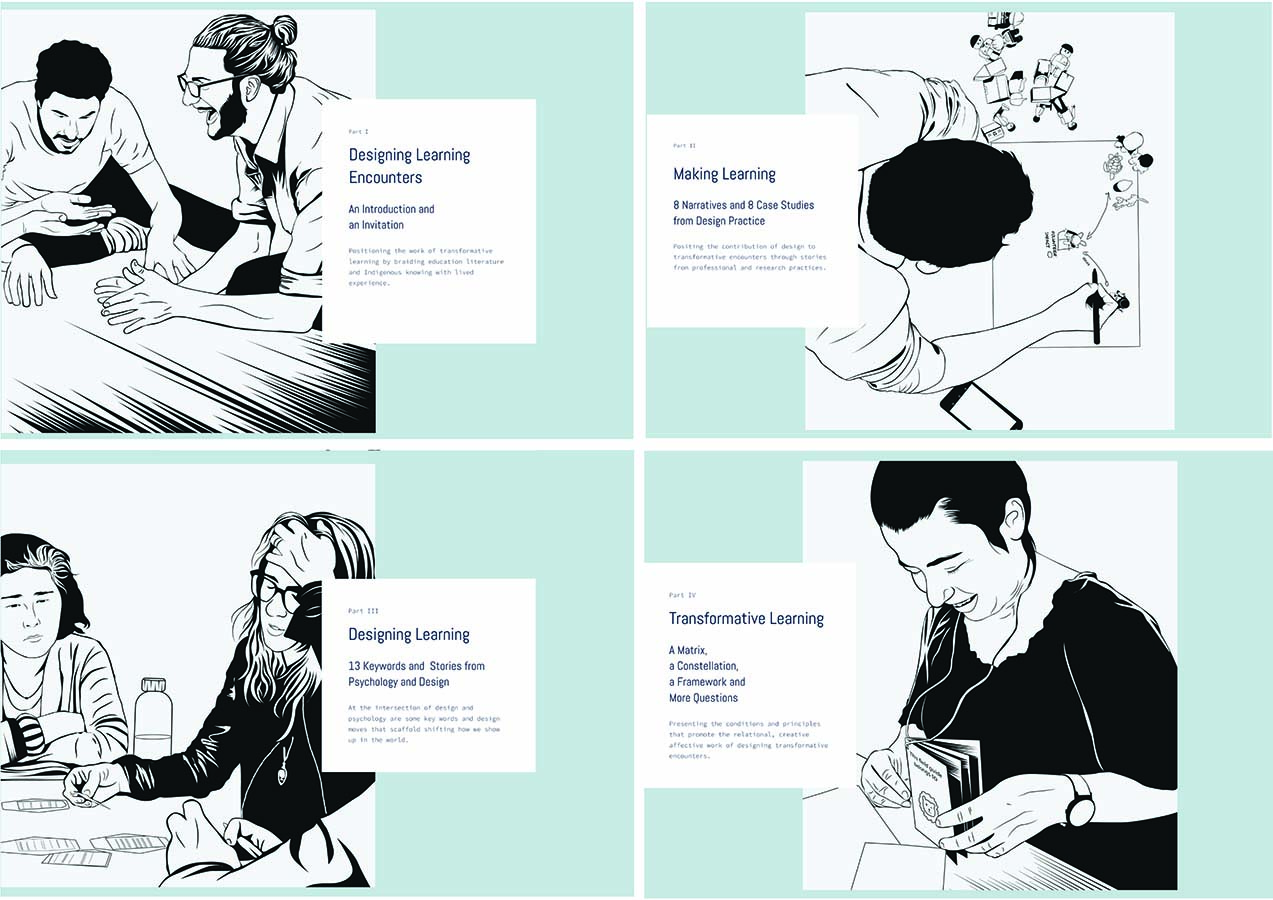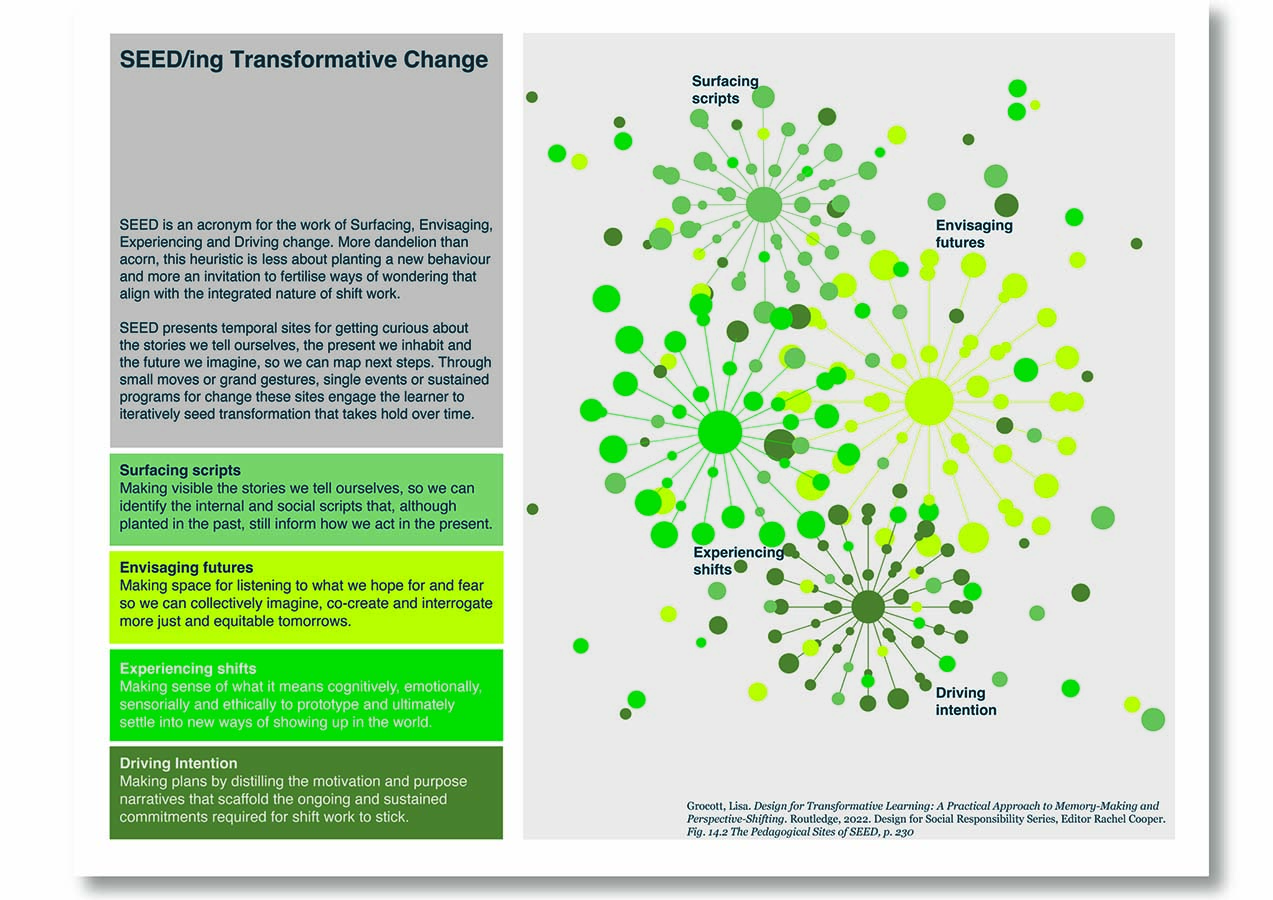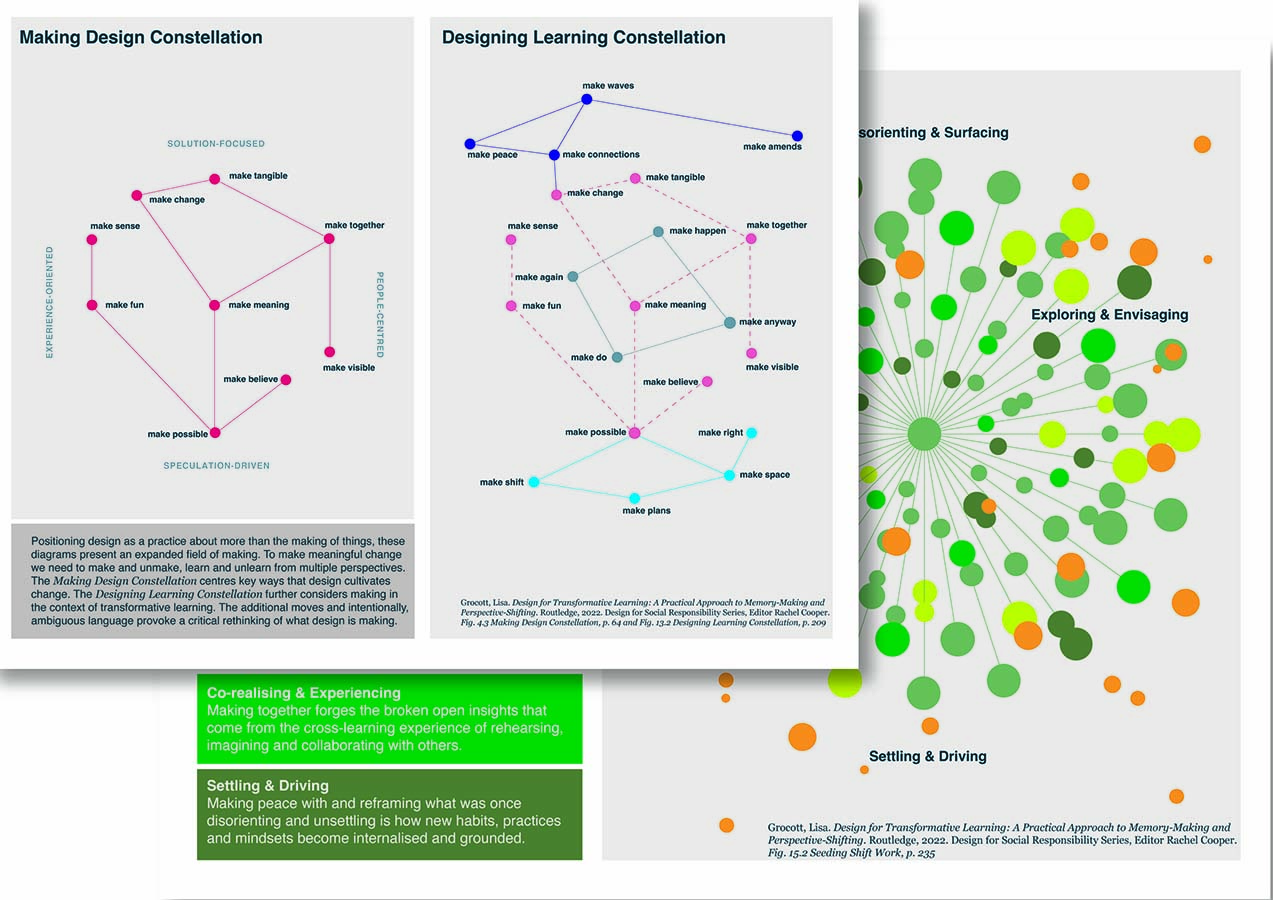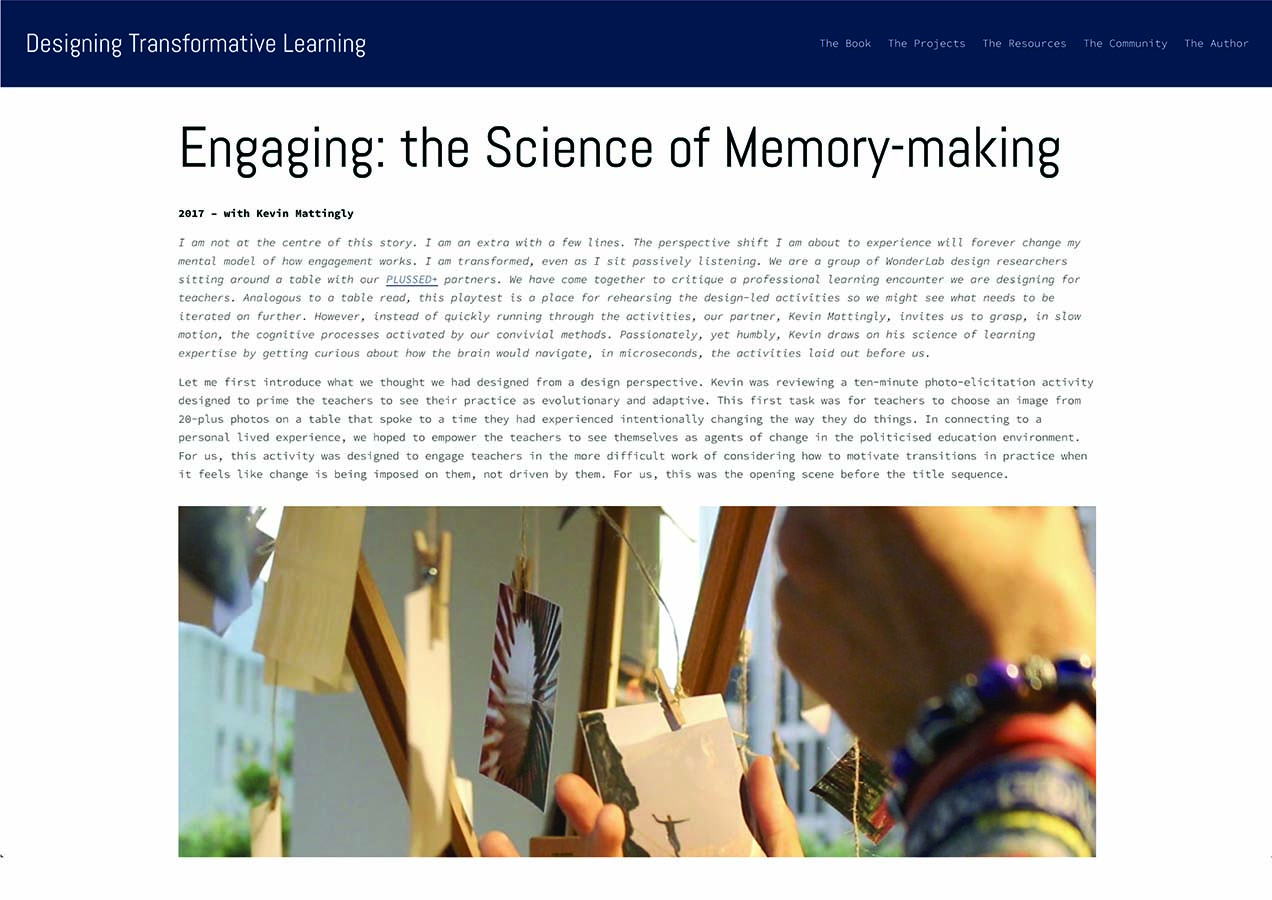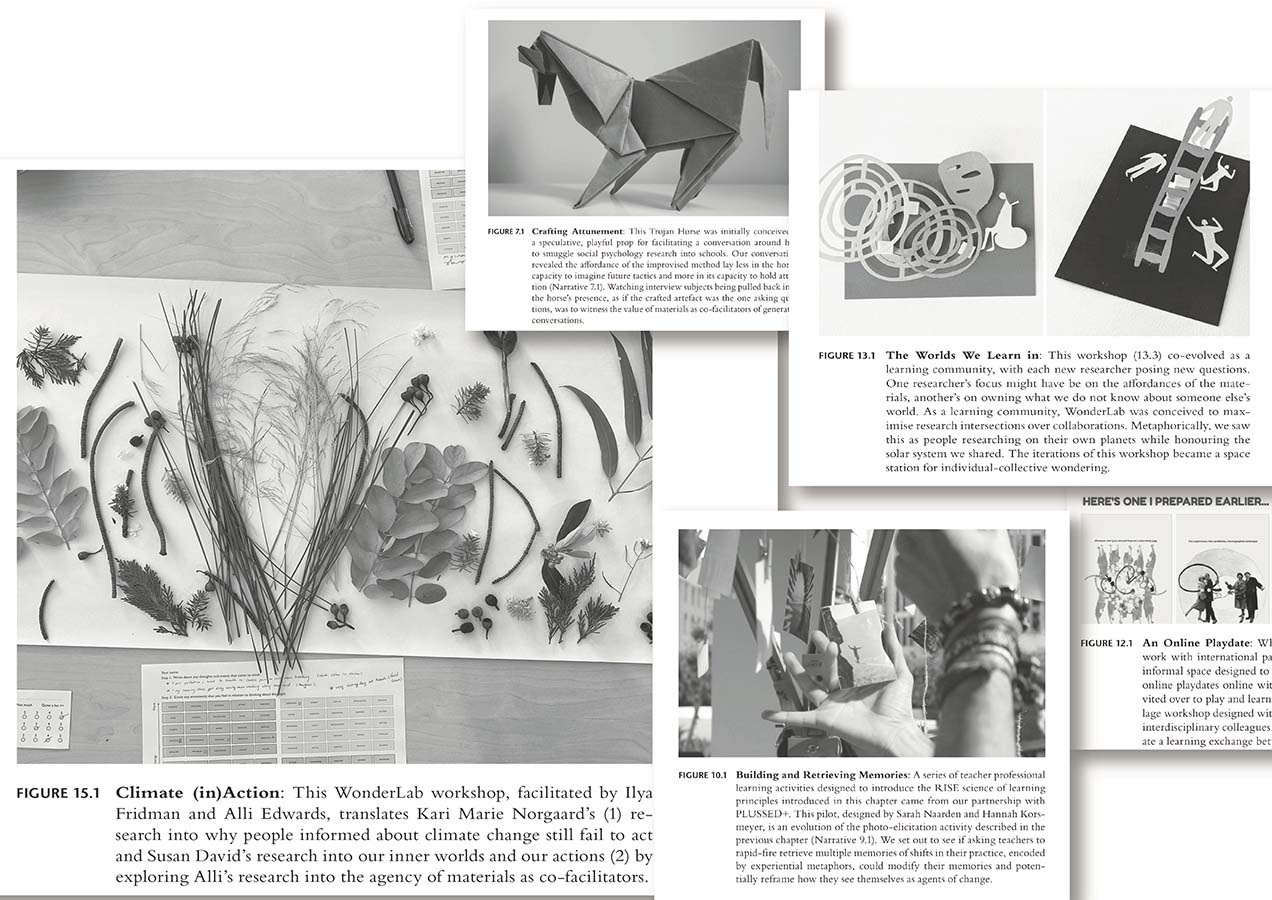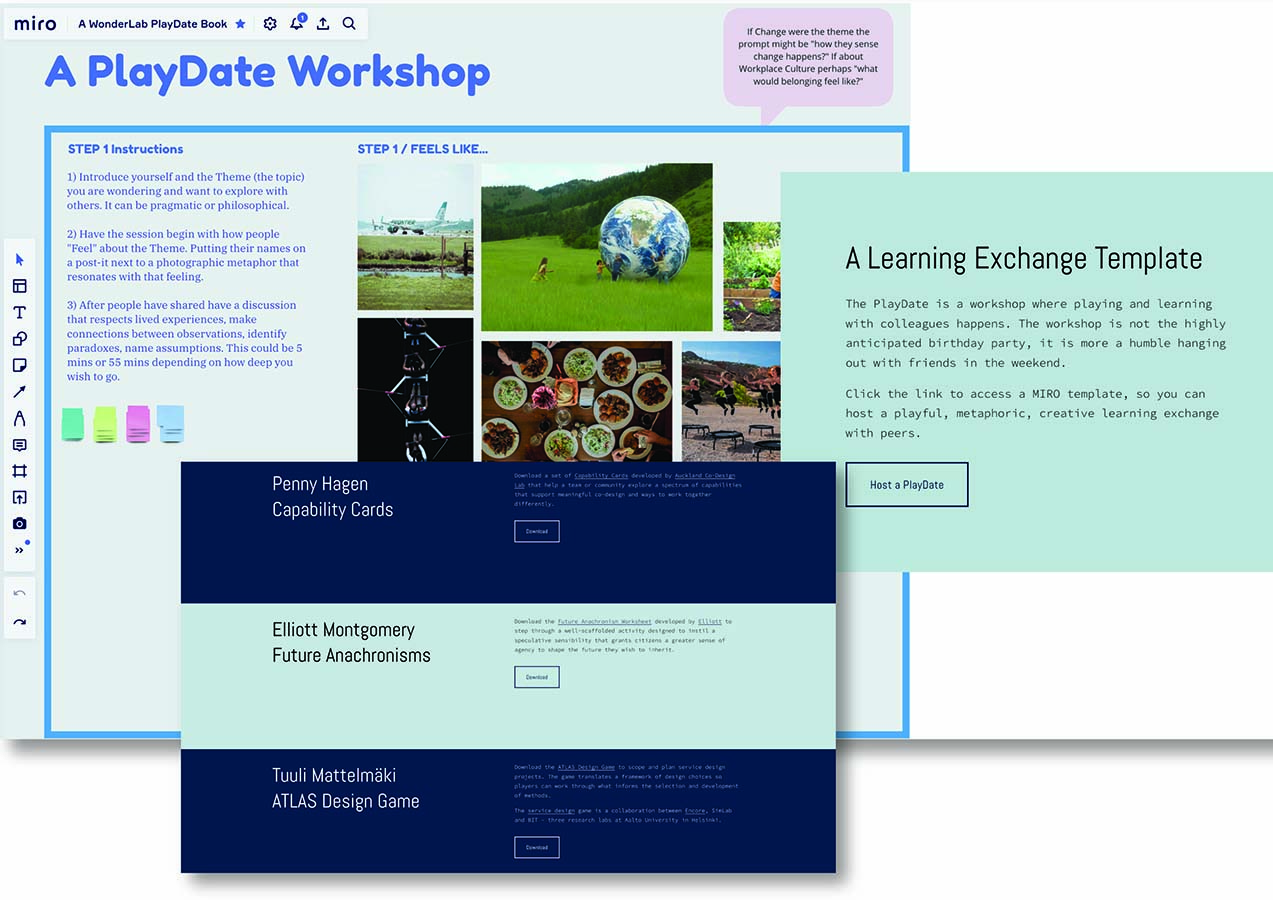The work of radically reimagining sustainable, just and equitable futures, in a post-COVID-19 world, calls for getting critical and curious about what was previously normalised. This research project translates what design can bring to this work of perspective shifting. The research recognises that systemic change will be transdisciplinary work and decades in the making. Yet, in naming how the experiential and relational practice of co-design primes people to reflect, share and make, the research builds the business and intellectual case for design’s contribution in engaging learners and citizens in transformation projects. In turn, driving demand for transformation design services. SEED is an acronym for surfacing scripts, envisaging futures, experiencing shifts and driving intentions. Seen as ways to seed wonder, these strategic insights position the role of design in the more-than-cognitive task of shiftwork.
The book elaborates the ways and the website shares resources for designing encounters that will fuel inquiry and invite introspection, call for better questions and forge new paths. The project includes evidence-based research from social and cognitive psychology complement the world views of Indigenous knowing. Case study analysis is in conversations with autoethnographic narratives of practice. Figuring, a visual communication method, is used to theorise design knowing in ways salient to the design community. Committed to cognitive, contextual and cultural diversity the research project includes stories from interdisciplinary scholars, doctoral dissertations, professional practice and nation-wide initiatives. Embracing diversity, sharing what design does well, and exploring what design can learn from other fields the research presents 8 case studies, 8 practice vignettes, 12 transformation narratives, 13 keywords, 2 digital templates, 3 actionable frameworks and countless methods and references. Projects are from India, Mexico, Finland, USA, Australia and NZ, with Māori, Aboriginal and Mayan lenses illuminating first nation perspectives.

